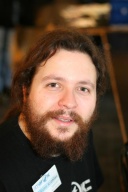Promo/Events/FOSDEM/2010/Abstracts
KDE SC 4.4 demo
KDE has just released the shinyest most complete version of its desktop yet. KDE Software Collection 4.4 uses the leading KDE Platform provided by KDE 4 to provide applications that cover the needs from netbooks to large desktop rollouts. Jos takes us through the new features in its applications and the progress made by KDE 4 in the last year.
Jos Poortvliet
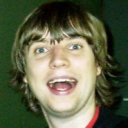
Jos is a member of the KDE promo team. He lives in the Netherlands. Anyone accepting a lift home in his car from FOSDEM does so at their own risk.
PIMp My Desktop
KDE PIM is a suite of applications to manage your personal data. Paul takes us through the abilities of Kontact and its related applications. He will look at Akonadi the desktop neutral platform used as the backend for much of KDE PIM.
Paul Adams
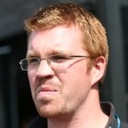
Paul is a KDE contributor living in Scotland. He works for KDAB, a company who provide KDE and Qt services. He likes the word humungous.
KDevelop 4
KDevelop is the IDE from KDE. It can be used for many programming languages and environements. KDevelop 4 rewrites much of the application and is about to be released. Aleix will take a look at the features and give us tips on getting the most out of your coding time.
Aleix Pol
Aleix is a KDE developer from Spain.
Introduction to Qt Designer
Creating GUI interfaces is easy with Qt Designer. Sune will take us through making basic and complex user interfaces with this pleasingly easy to use app from Nokia's Qt division.
Sune Vuorela

Sune is a Debian packager on the KDE-Qt team. He lives in Denmark.
Spreading KDE with the openSUSE Build Service
The openSUSE build service is used to build and host packages for SUSE and other distributions. Will will look at what is hosted on the service and how you can add to it.
Will Stephenson
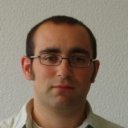
Will Stephenson has been a software engineer at Novell since 2004, responsible for developing and maintaining the KDE desktop for SUSE Linux products. He is currently part of the openSUSE Boosters team, working to make openSUSE an open project that anyone can contribute to. Will has been contributing to KDE since 2002, and his contributions to KDE include KDE Network Management, parts of the Solid hardware framework, the Kopete instant messenger, and the Kontact personal information management suite.
Amarok 2.2 Rocking
Amarok rediscovers your music. It sorts and searchs through your collections, music devices and internet music services. Sven will take us through the latest features in this rocking application.
Sven Krohlas
Sven Krohlas is a 27 years old computer science student at the university of Karlsruhe, Germany. He is a founding member of the Amarok promotion team Rokymotion.
On IRC you can contact him under the nick sven423. On a more artistic side he is a radio dj at darkerradio.com where he moderates the only German webradio charts show playing exclusively open music, the Free Music Charts, which are also integrated into Amarok.
KDE España
KDE España is the society for KDE developers in Spain. Aleix will tell us what it does and why it exists. http://es.kde.org/
Aleix Pol
As above
Coherence - The Digital Livingroom and beyond
(sharing our media with UPnP/DLNA)
After quite some time, where our digital media was limited to dedicated devices - e.g. mp3 players - or spend an isolated life on the PCs of their owners, more and more consumer device appear on the market allowing to easily share these media files in an household (and beyond).
The protocols behind UPnP A/V and DLNA are nowadays implemented in nearly every connected Consumer Electronics device. Being it some first simple clients years ago, continuing with consoles like the PS3 and the XBox 360, media clients like the PopcornHour,... and now they can be found in amplifiers, TVs and even mobile phones from various vendors.
Using these UPnP A/V and DLNA on our computers and enabling our favourite applications to enter that world, creates a unique landscape where suddenly bridges appear between formerly isolated digital islands.
Coherence is a framework written in Python, that greatly simlifies the entry into the UPnP world. It provides numerous UPnP devices, that can instantly used to serve media-files, act as a gateway to online resources, or to expose the media-db of some application. Others enable controllable media playback for instance via GStreamer.
For applications it supplies interfaces via DBus, Rest/JSON or XML-RPC to interact with UPnP devices - e.g. browse the content of some MediaServer.
The goals of our session:
- (short) introduction to UPnP A/V
- Coherence architecture and extensibility
- demonstrating the integration and (DBus) interaction of Coherence with other applications:
- Amarok and kio/FileManager (KDE) - work in progress,
reporting from the two sprints in 2009 - Rhythmbox, Totem, Nautilus, EoG and Banshee (Gnome)
- DVB-Daemon, Ampache, Gallery2, YaML,...
- YouTube, Flickr, Picassa, RadioTime,...
- provide some insight into Mirabeau, our vision of 'Personal Media Networks' (there will be a dedicated talk about this in XMPP dev room)
Frank Scholz and Philippe Normand
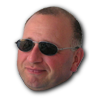
Frank Scholz is the founder and lead-developer of Coherence and lives in Germany. When his family grants him the time, he works on perfecting his Linux home-server integration with home-automation and home-entertainment systems.
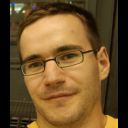
Philippe Normand has worked at ENST-Bretagne (France) on home-care and domotic technologies for elderly people. He too worked on the Elisa/Moovida media-center project at Fluendo.
He is also a contributor to Free Software projects, mostly in the Python language community.
At Igalia he currently works on improving the HTML5 audio/video support in WebKitGTK+ with the GStreamer multimedia framework. Philippe has a Master degree in Computer Sciences.
Nepomuk
Nepomuk makes your desktop semantik. Using RDF is provides context to items in applications making searching and sorting easy and fast. Sebastian will take us through how it works and what it adds for users.
Sebastian Trüg
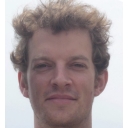
Sebastian Trüg is a KDE developer from Germany. He wrote K3b, the CD burning applications and is the lead developer for Nepomuk. He works for Mandriva.

